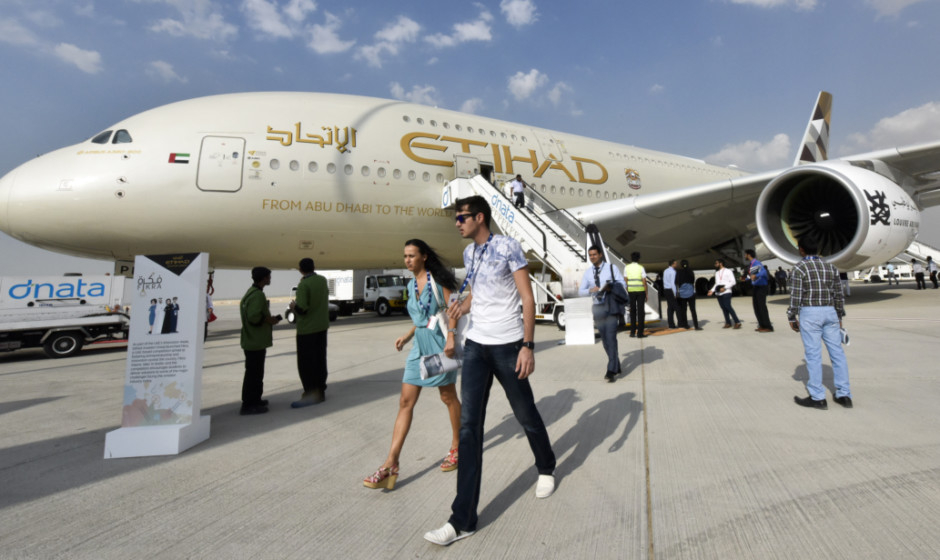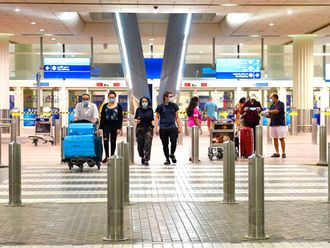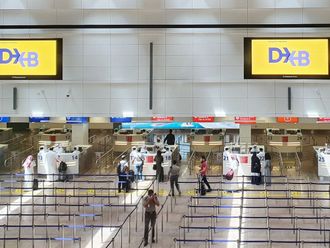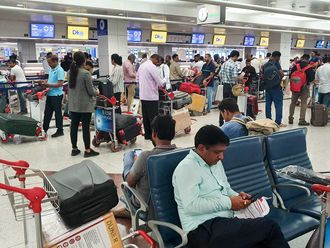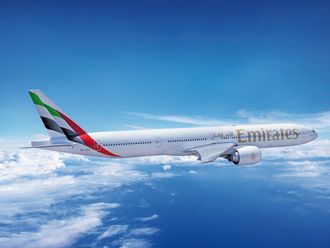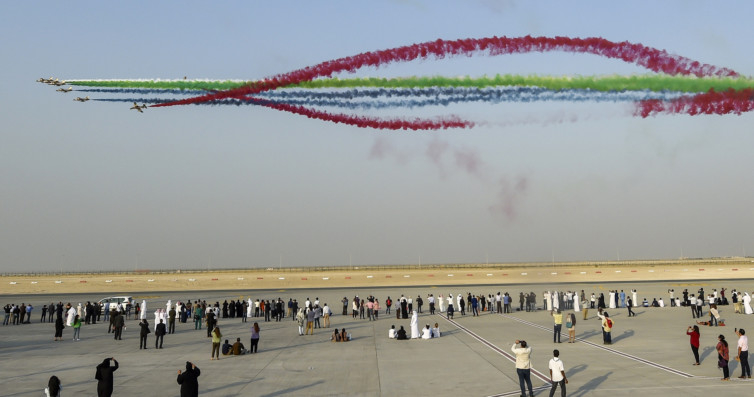
DUBAI: This year’s Dubai Air Show saw aircraft manufacturers such as Airbus and Boeing booking $113.8 billion in orders, brining the week to a colourful end.
The figure is nearly three times the $37.2 billion in orders signed in 2015.
The total tally included mega deals from Emirates and flydubai, which announced orders worth $15 billion and $27 billion respectively for Boeing aircraft as both carriers chart their growth plans for the next decade.
“The strength of orders underlines that despite numerous geopolitical challenges, the region remains an extremely important market for the manufacturers,” said John Strickland, aviation expert and director of air transport consultancy JLS Consulting.
The 2017 tally, though, still doesn’t match the more than $200 billion worth of deals in 2013.
But for all the deals signed at the show over the past week, perhaps the most significant was the one that never came to fruition.
After five days at the air show, Airbus and Emirates failed to conclude a potential deal for new A380 orders. A deal between the two was one of the most highly-anticipated events of the show amid questions about the future of the European plane maker’s A380 programme.
“It wasn’t a sure thing that an [A380] order would be concluded. Both sides want to do it, but Emirates needs to feel secure in the future production of the aircraft, and it is Airbus’s challenge as to how to provide this certainty,” Strickland said.
During the show, Tim Clark, president of Emirates, urged Airbus to commit to the future of the manufacturer’s A380 programme, and asked for guarantees that Airbus will keep producing the superjumbo for at least 10 years.
Airbus, Boeing deals
Airbus came out of the air show with $58.3 billion in new business, and received commitments for a total of 502 commercial aircraft, an Airbus spokesperson confirmed to Gulf News. This included the largest commercial plane order in Airbus’ history: an order from Indigo Partners for 430 aircraft worth nearly $50 billion.
The deal came as Airbus rival Boeing was almost emerging as the winner at the show after it announced an order worth $15 billion for 40 of its 787-10 aircraft from Emirates.
Boeing said it secured total commitments for 302 aircraft — including 50 options — with a value of about $50.7 billion at list prices during the air show.
The US manufacturer won orders both for commercial and defence aircraft, including an order just hours before the show ended with Kazakhstan-based SCAT Airlines for six 737 MAX 8s valued at $674 million.
“This has been a very successful show for Boeing. We signed agreements with key airline partners including Emirates, flydubai, Azerbaijan Airlines, Alafco, and Ethiopian Airlines. In addition, Egyptair became a new customer for the 787,” said Bernard Dunn, president of Boeing Middle East, North Africa and Turkey.
Orders from UAE carriers
The deal with flydubai came in the form of a $27 billion order from the low-cost carrier for 225 Boeing 737 MAX aircraft, including 50 options. The surprise announcement on the fourth day of the air show followed comments from flydubai’s chief executive that the airline was considering both Boeing and Airbus models to expand its fleet.
The Boeing deal marked the third aircraft order placed by flydubai in its eight-year history, and brings the total number of aircraft the airline has on order, to 320. The latest order alone also more than triples flydubai’s fleet, which currently stands at 61 aircraft.
Another deal from a UAE-based carrier during the show was that from Air Arabia, which signed a lease agreement for six Airbus A321 neo long-range aircraft. Abu Dhabi-based Etihad Airways did not announce any orders at the show as the carrier focuses on turning around its financial performance and restructuring.
Organisers of the air show said on Thursday the event drew over 79,000 trade visitors, up around 20 per cent over the 2015 version of the event.


